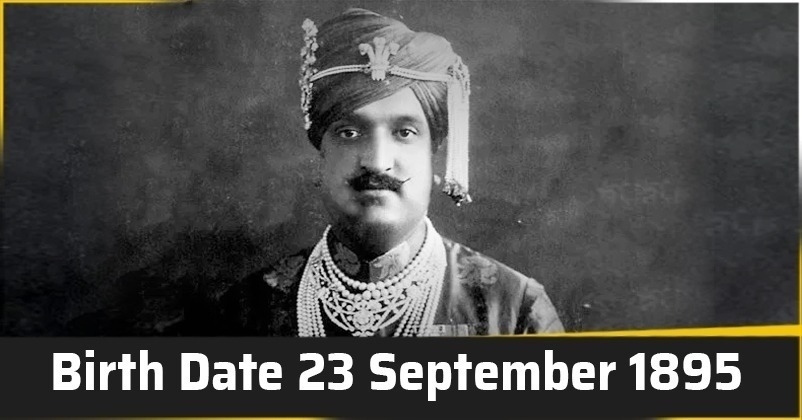Celebrating Maharaja Hari Singh’s Birth Anniversary The Leader Who United J&K with India
Total Views |

Today marks the birth anniversary of Maharaja Hari Singh, born on September 23, 1895, who was the last ruling Maharaja of Jammu and Kashmir. His legacy extends far beyond his royal duties. His greatest contribution to India was his decision to accede Jammu and Kashmir to India in 1947, despite having the option to join Pakistan. This historic decision ensured the region became an integral part of India.
Maharaja Hari Singh’s reign was marked by numerous reforms focused on the welfare and development of the people. He introduced progressive laws to protect peasants, such as the Agriculturist’s Relief Act, which settled disputes between debtors and creditors through courts, freeing rural workers from the control of moneylenders. The Land Alienation Act ensured that agricultural land could not be sold to non-agriculturists, safeguarding farmers’ interests. He also abolished forced labor and introduced the Kahcharai Act, which granted tax exemptions to livestock owners.
In the realm of rural development, Maharaja empowered village Panchayats to resolve community disputes and involved them in implementing rural development schemes. In 1937, he established the Department of Rural Development, a pioneering move for the time.
Maharaja Hari Singh also took significant steps to boost the state’s economy. He encouraged trade and local industries by removing excessive taxes and promoting local products. He founded Jammu and Kashmir Bank in 1938 to manage the state treasury and pushed for the development of silk, carpet, and tannery industries, generating employment for thousands of people. His emphasis on industrial growth led to the establishment of factories and industrial centers in Jammu and Srinagar.
He also promoted tourism, enhancing the natural beauty of places like Pahalgam and Gulmarg as tourist destinations. Additionally, he ensured affordable grain supplies during World War II and set up a Price Control Department to protect the state’s poor population.
Education was another area of focus. He introduced free primary and secondary education for state residents in 1930 and made primary education mandatory. He even provided scholarships for students to pursue higher education in India and abroad.
Social reform was a key part of Maharaja’s rule. He worked tirelessly to end practices like untouchability, child marriage, and human trafficking. He opened schools, colleges, and public places to marginalized communities and made untouchability a crime in 1940.
Maharaja also brought democracy to the region by establishing the Jammu and Kashmir Praja Sabha (Legislative Assembly) in 1934, giving citizens a voice in governance. This assembly was composed of both nominated and elected members, including representation from Muslims, Hindus, and Sikhs.
Maharaja Hari Singh passed away on April 26, 1961, but his contributions continue to be remembered and respected. His progressive vision and dedication to the welfare of the people have made him a beloved figure in Jammu and Kashmir’s history.

